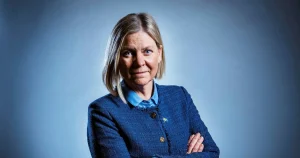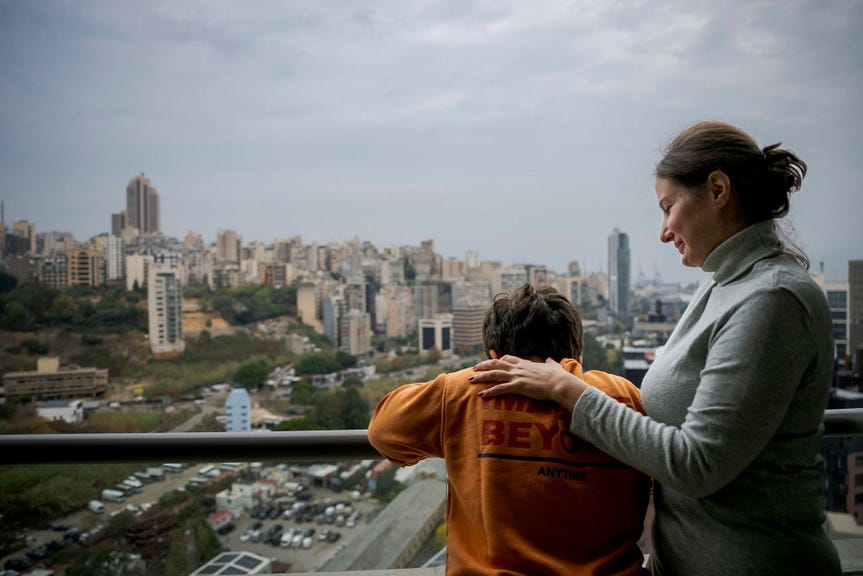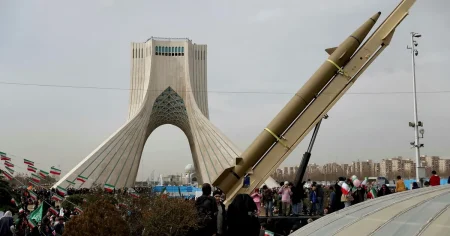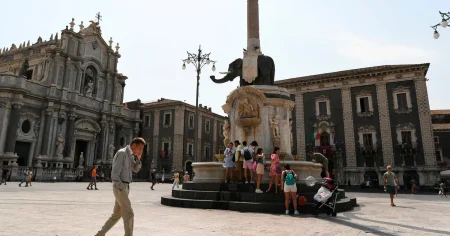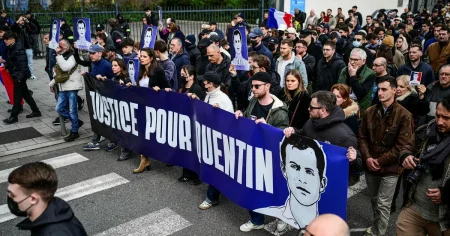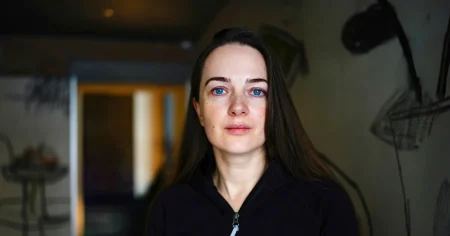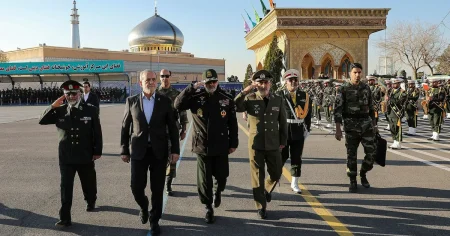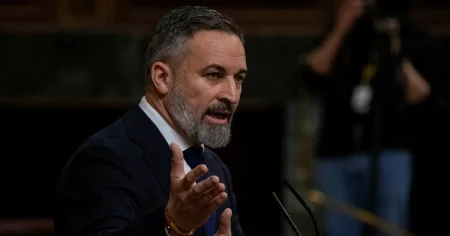Alia Mansour, a Syrian journalist living in exile in Beirut, felt a surge of hope as news of the rebel advance in Syria reached her. Her eight-year-old son, witnessing her celebratory dance, inquired about the cause, prompting her to declare, ”The revolution is here!” His weary response, ”Again?” reflected the repeated disappointments of past uprisings. However, this time, Alia felt a deep conviction that Bashar al-Assad’s regime was truly on the verge of collapse. Having fled Syria in 2005 after participating in anti-regime protests, Alia had not set foot in her homeland for two decades, vowing to return only after Assad’s image was removed from the borders. With the rebels closing in on Damascus, she believed this moment was finally at hand.
Alia’s apartment, overlooking Beirut’s Christian quarter, became a hub of nervous anticipation as she followed the unfolding events in Syria through her contacts. The swift rebel takeover of Aleppo, a city that had taken the regime three years to capture, astonished her. She attributed Assad’s precarious position to his refusal to engage in political solutions, alienating even his allies, Turkey and Russia. Alia believed a plan was in place, likely with Russian backing, for a transitional period involving an interim leader from within the regime followed by a new constitution. While acknowledging the fear surrounding figures like Mohammed al-Julani, the leader of the extremist group Hayat Tahrir al-Sham (HTS), she emphasized the necessity of navigating the complexities of the situation. The priority, she felt, was the removal of Assad, even if it meant accepting an imperfect alternative.
The atmosphere in Alia’s home was a mix of hope and apprehension. The disorder caused by her sick three-year-old added to the general tension. She expressed her anxieties as a secular Sunni Muslim wary of Islamist groups, but acknowledged that they were a force to be reckoned with in the current landscape. Alia believed that Syrians, having endured so much under Assad, were willing to accept any change, no matter how uncertain. Her own anticipation of returning home was bittersweet, tinged with the knowledge that her father, who had inspired her refusal to return until Assad’s downfall, had passed away and would not witness the liberation.
Meanwhile, in the impoverished Jnah district of Beirut, Syrian refugees lived in precarious conditions, longing for an end to the conflict and a chance to return home. Saria, sharing a cramped room with her adult son and other family members, expressed her yearning to see her relatives in Daraa. However, she was hesitant to openly express her support for the rebels, fearing reprisals if the regime survived. Abed, a Lebanese man who seemed to monitor conversations in the area, echoed this sentiment, highlighting the refugees’ vulnerability and the risks they faced in expressing their true opinions. Twelve-year-old Samira, born and raised in Lebanon, dreamed of visiting her ancestral homeland but also harbored aspirations of escaping to a different life as a flight attendant.
Alia’s journey, although marked by exile and hardship, had afforded her a more comfortable life than most Syrian refugees. However, her outspoken opposition to the regime continued to carry risks, as evidenced by her recent arrest by Lebanese authorities on fabricated charges of pro-Israel sentiments. Despite the years of waiting and the personal losses she had endured, Alia remained resolute in her belief that a new Syria was within reach. The destruction of her grandfather’s house in Homs served as a stark reminder of the war’s devastation, but also strengthened her conviction that any future, no matter how challenging, would be better than life under Assad’s oppressive rule.
The article highlights the complex web of emotions and aspirations surrounding the Syrian conflict. From Alia’s hope-tinged anxiety to the cautious optimism of refugees like Saria, the narrative captures the yearning for change and the fear of uncertainty. The presence of figures like Abed underscores the vulnerability of displaced populations and the pervasive atmosphere of suspicion. Samira’s dreams represent the aspirations of a younger generation seeking a brighter future beyond the shadow of war. Alia’s determination to return to a liberated Syria, even in the face of personal loss, symbolizes the enduring spirit of the Syrian people and their unwavering hope for a better tomorrow.


